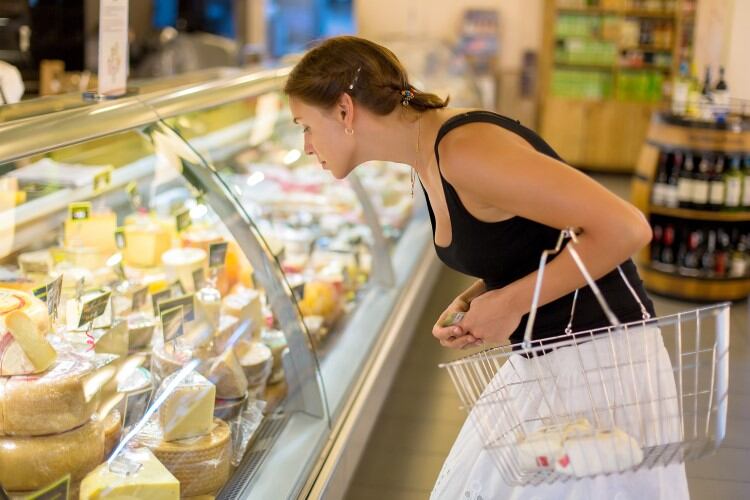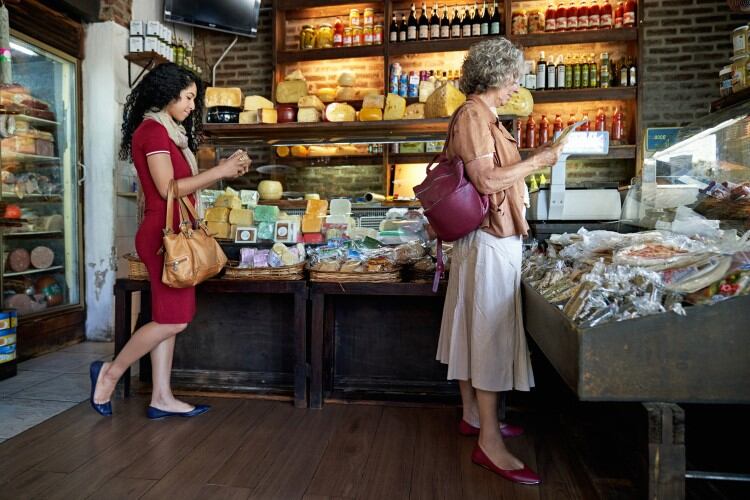These are Being Human – i.e., finding ways to elevate consumer experience through human creativity as a contrast to technology; More Than Money – redefining what constitutes value; Relationship Renaissance – leveraging interpersonal relationships; New Green Reality – addressing the climate threat; and Positive Perspectives – offering consumers support and actionable information during times of uncertainty.
Among the main five trends, there are several important factors – from consumer disillusionment with green claims to relationship- and image-building opportunities – that dairy companies should keep an eye on in 2024.
Farmers as 'trustworthy sources'
In times when environmental sustainability is on everyone’s lips, consumer mistrust is growing. According to Mintel, 60% of US consumers agree that many companies are ‘just pretending’ to be sustainable, while 52% of German shoppers do not trust companies to be honest about their environmental impact.
The market intelligence agency suggests that to get through to consumers, brands need to communicate their eco-friendly practices in authentic ways and through measurable forms rather than catch-all, zero-sum terminology. In the dairy industry – where quantifying scope 3, value-chain emissions is still a challenge for many companies despite their appetite for achieving ‘net zero’ (which involves tackling scope 3 emissions) – the attitudes of mistrust should be actively challenged.
According to David Faulkner, Mintel Food & Drink director, dairy brands can benefit from involving farmers in the climate conversation. “Although for many food and drink consumers around the world the importance of sustainability as a key purchase motivator has been deprioritized due to the rising cost of living, they acknowledge the importance of buying sustainably,” he told us. “Consumers expect food companies to be more transparent about sustainability, including their farming practices. At the same time, consumers can be sceptical about brands' priorities and ethical posture.
“When it comes to understanding environmental issues, consumers trust farmers. Therefore, brands should let trusted advisors like farmers share details on their expertise related to animal grazing and soil health.”
He added that in Canada, 37% of consumers feel that farmers are trustworthy sources of information in understanding food and drinks' environmental impact. “In comparison, 19% of consumers consider well-known food brands as trustworthy sources of information,” he explained.
However, in the US there is a large minority that would still pick a familiar product over a ‘green’ one - according to the report, 34% of US consumers say they choose food or beverage products based on familiarity rather than sustainable claims. But could relying on familiarity hinder innovation in the dairy aisle? “Familiarity is a strength which gives traditional brands the permission to innovate,” Faulkner explained. “Because a brand is trusted, there is opportunity for it to offer new variants and innovations. A good example is the way BabyBel has introduced plant-based variants. Trust and heritage can be seen as a springboard to innovation, not a hindrance.”
Appetite for authenticity – but mind Gen Z
Traditions and heritage can also help dairy producers bolster brand and product value – whether by emphasizing the company’s market longevity or highlighting a product’s functional properties or naturalness. According to Mintel, the value of brands will also grow as consumers attach personal significance to these brands – so fostering an emotional connection ‘will lead to a long-term sustainable contact’, the agency suggests.
But different generations attach value to heritage in different ways. Offering an example from the UK, Faulkner said: “Compared to Baby Boomers, younger cheese buyers are less likely to pay more for a cheese that is made in the UK or comes from a known area (e.g., Parmigiano-Reggiano, West Country Cheddar). However, younger cheese consumers are also more open to European-style cheeses made in Britain, i..e British-style mozzarella, Somerset Brie.
"Only 11% of Gen Z cheese buyers would be encouraged to pay more for a cheese offering benefits like a traditional recipe.”
To appeal to younger consumers, cheese brands must align their storytelling with the interests, values and taste preferences of Gen Z, he noted. “Strong branding and communication about farmer welfare are more likely to motivate younger British cheese buyers,” said Faulkner.
Dairy holds its ground amidst growing market for alternatives
Mintel notes that just as meat alternatives were designed to replicate the real product, consumers ‘will want to stay true to their habits and routines with greener products’ – but as seen with alt meat, consumer demand alone is not enough. “The alt meat market has been impacted by issues of taste, affordability and health attributes,” Faulkner told us. “In response to economic uncertainty, consumers have turned away from alt meat products in favour of familiar, less expensive meat products. Key consumers such as flexitarians perceive alt meats as too processed.”
On the dairy alternatives front, between a third and half of shoppers in major European markets now use alt dairy products – but usage is plateauing, according to Faulkner. “Loyalty towards dairy remains strong: most consumers claim that they would never completely give up consuming dairy.
“They worry they - and their children - will miss out on essential nutrients.”
Nevertheless, European consumers have remained loyal to alt dairy despite economic pressures, he added. “Only a minority have bought fewer plant-based dairy or have switched back to dairy.”
Taste perceptions and price remain the greatest hurdles for consumer adoption of alt dairy products among consumers, though for one in five, there are no particular reasons why the have avoided these products so far. There could be two factors at play here, according to Faulkner. “Dairy alternatives are not necessarily on non-users' radar,” he said. “Shoppers might also be overwhelmed by the sheer amount of choice now available to them. In the UK, 34% of milk users say that the wide range of plant-based milks available makes choosing one to try difficult for them.”
Re-imagining the solo routine – opportunities in active nutrition?
Mintel also says that brands need to be more active in ‘re-designing solo routines’ – e.g. the morning coffee - as something consumers don’t have to do alone now that many are looking to form new relationships and engage with their communities post-pandemic.
For dairy brands, opportunities here could lie in the active nutrition segment or the broader better-for-you food and beverage sector. With recent NPD break-throughs such as that achieved by SIG and AnaBio Technologies, who formulated and packaged the first ambient probiotics-fortified yogurt, there could be more opportunities to appeal to wider groups of active consumers outside of their solo routines.
Mintel’s Global Trends Report is now available directly from the market intelligence company’s website.



